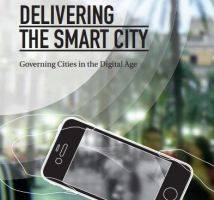November 25, 2014
UK business centres market continues to flourish, claims BCA and IPD report
 A new report has revealed just how important the growing business centres market is to the UK economy. According to the report from the Business Centre Association and Investment Property Databank the market is now comparable to the City of London both in terms of the number of people employed and the amount of office space it occupies. The report also outlines both the market’s robust health during the recent economic downturn and ongoing growth in response to increasing customer demand and the changing market for office space. The sector now boasts that it provides a home to some 80,000 businesses employing more than 400,000 people who occupy around 70 million sq. ft. of space including landmark developments such as the Regus No 1 Poultry centre in the City of London (above) and generate around £2 billion of income for the economy. The report, produced in conjunction with Snapdragon Consulting, found that the serviced office sector in the UK now represents around one third of the global market.
A new report has revealed just how important the growing business centres market is to the UK economy. According to the report from the Business Centre Association and Investment Property Databank the market is now comparable to the City of London both in terms of the number of people employed and the amount of office space it occupies. The report also outlines both the market’s robust health during the recent economic downturn and ongoing growth in response to increasing customer demand and the changing market for office space. The sector now boasts that it provides a home to some 80,000 businesses employing more than 400,000 people who occupy around 70 million sq. ft. of space including landmark developments such as the Regus No 1 Poultry centre in the City of London (above) and generate around £2 billion of income for the economy. The report, produced in conjunction with Snapdragon Consulting, found that the serviced office sector in the UK now represents around one third of the global market.






















October 21, 2014
The death of the office desk may have been exaggerated
by Crispin Williams • Comment, Furniture, Workplace design